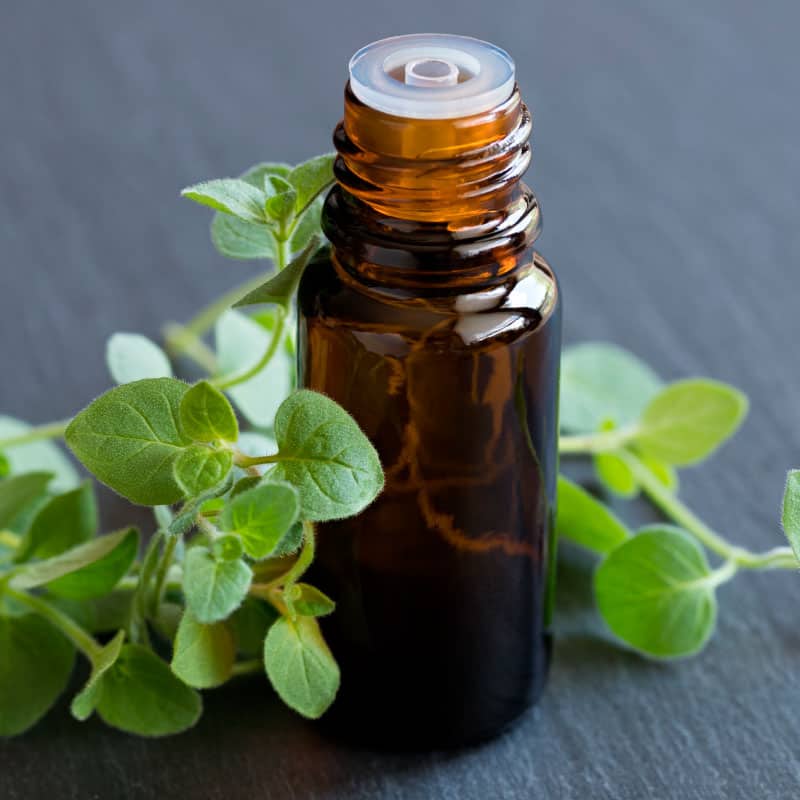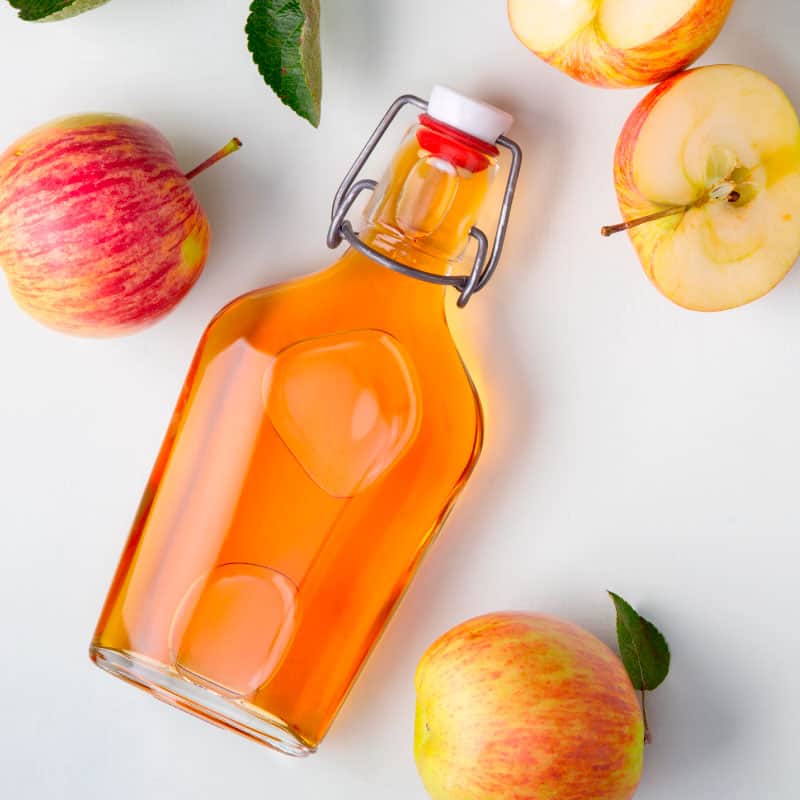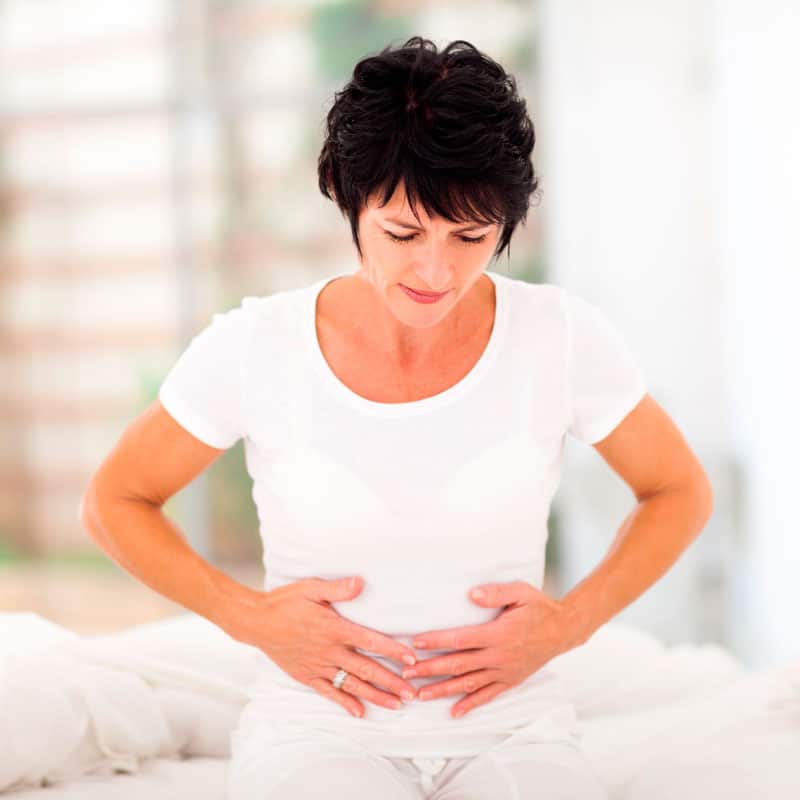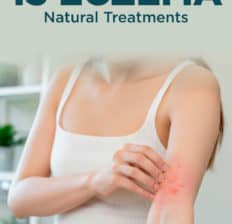This Dr. Axe content is medically reviewed or fact checked to ensure factually accurate information.
With strict editorial sourcing guidelines, we only link to academic research institutions, reputable media sites and, when research is available, medically peer-reviewed studies. Note that the numbers in parentheses (1, 2, etc.) are clickable links to these studies.
The information in our articles is NOT intended to replace a one-on-one relationship with a qualified health care professional and is not intended as medical advice.
This article is based on scientific evidence, written by experts and fact checked by our trained editorial staff. Note that the numbers in parentheses (1, 2, etc.) are clickable links to medically peer-reviewed studies.
Our team includes licensed nutritionists and dietitians, certified health education specialists, as well as certified strength and conditioning specialists, personal trainers and corrective exercise specialists. Our team aims to be not only thorough with its research, but also objective and unbiased.
The information in our articles is NOT intended to replace a one-on-one relationship with a qualified health care professional and is not intended as medical advice.
Natural Eczema Treatment: 13 Home Remedies (Plus Symptoms & Causes)
December 2, 2022
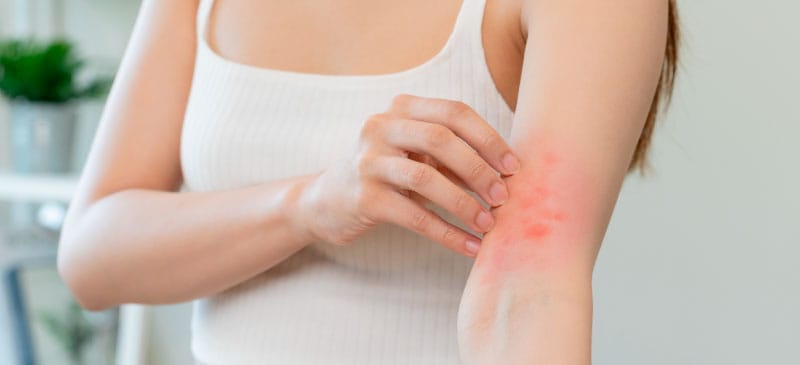
Is your skin red, dry, scaly and extremely itchy? These are common eczema symptoms, a skin condition believed to affect more than 31 million Americans, leaving many to search for the best eczema treatment options.
What is eczema? It actually isn’t a single condition — it’s a group of skin conditions that includes:
- atopic dermatitis
- contact dermatitis
- dyshidrotic eczema
- hand eczema
- neurodermatitis
- nummular eczema
- stasis dermatitis
Finding a soothing, natural eczema treatment can be life-changing for those suffering from this frustrating condition. Read on to learn about the symptoms, causes and natural eczema treatment options.
Causes and Symptoms
Eczema typically first appears in very young children. Of further concern is that eczema in children is becoming more and more common.
Diseases it can resemble include psoriasis, rosacea and dermatitis, but it’s a different condition.
A study conducted by the Department of Pediatrics at Cincinnati Children’s Hospital Medical Center found that 39 percent of Caucasian children develop eczema by 3 years old. Interestingly, this same study found children who have dogs in the home are significantly less likely to develop it at any age.
Although initial outbreaks most often occur in infants and young children, onset can occur at any time. While the majority of the skin conditions that fall under the eczema heading are chronic, it is important to note that contact dermatitis and hand eczema may be acute in nature, occurring due to an exposure to allergens or chemicals.
For many people, the severity of flare-ups lessens with maturity, and some may even outgrow it altogether. However, it can come and go throughout life. Learning how to treat eczema and identifying triggers that cause flares are the best courses of action.
While there is no definitive answer as to the cause of eczema — and there is no identified cure — there are effective natural treatments, home remedies and essential oils for eczema that may help prevent future flares and ease discomfort during an outbreak.
There is a wide range of causes and risk factors associated with this condition, and eczema symptoms can manifest in widely different ways between those affected.
While a singular cause of eczema has not been established, there are certain common causes leading to the onset and flares. In addition, a wide range of risk factors has been identified.
Risk Factors
- A genetic predisposition or family history of eczema, hay fever or asthma
- Young age
- Being a health care worker
- Children who attend daycare
- ADHD
- Living in a dry climate
- Nutritional deficiency
- Adolescent obesity, for later onset of eczema cases
- Low vitamin D levels during pregnancy, which may increase the risk of developing eczema in the first year of life
Causes
So far, the medical community has yet to determine a definitive cause of eczema. For some, it may occur due to a nutritional deficiency, while for others it may first arise due to an allergen or other irritant.
Here are the widely accepted causes of eczema:
- Dry skin and sensitive skin that cracks
- Immune system dysfunction
- Environmental conditions
- Gene variation that affects skin
- Allergies to foods, beauty products, laundry detergents or other chemical allergy
- Chronic stress
- Temperature changes
Symptoms of Eczema
While many experience a lessening of symptoms and fewer flare-ups as they age, some continue to experience eczema symptoms throughout adulthood, such as atopic eczema rashes. Symptoms can range from mild to severe and change from one outbreak to another.
Common symptoms include:
- The appearance of small, raised bumps that may ooze liquid and develop a crust
- Thick, dry, scaly skin that cracks
- Red, brown or grayish patches of skin on hands, feet, ankles, wrists, neck, upper chest, eyelids, in skin folds, and on the face and scalp of infants
- Sensitive skin that is swollen and raw from scratching
- A recurring rash that causes intense itching, often disrupting sleep patterns
- Rashes due to atopic eczema

Eczema Treatment
While there is no cure for eczema, there are a variety of non-invasive eczema treatment options that can provide relief during a flare-up and some that may prevent its onset. These can include corticosteroids, but the following home eczema treatment options may be best.
1. Light Therapy/Phototherapy
According to the National Eczema Association, phototherapy helps calm inflammation, reduces itching, increases vitamin D production and helps fight bacteria on the skin. Adding 10–15 minutes a day of sun exposure, particularly during an eczema flare, can provide relief and potentially speed healing.
2. Vitamin D
In addition to increasing sun exposure, supplementing with vitamin D foods like cod liver oil, sardines, salmon, eggs and raw milk may help prevent eczema in children and adolescents. If your sun exposure is low, consider boosting your intake with a high-quality supplement.
Preliminary research shows that low vitamin D levels during pregnancy and childhood may increase the risk for developing eczema.
3. Moisturize
Because dry skin is both a cause and symptom, it is imperative to moisturize affected areas at least twice a day. Coconut oil is the perfect moisturizer for eczema sufferers.
This eczema treatment is antibacterial and antifungal, with antimicrobial properties that provide soothing relief, and it may speed healing.
4. Treat the Mind and Body
According to Harvard Medical School, some skin conditions, including eczema, have a psychological component. This is a dynamic referred to as psychodermatology.
Researchers have found that hypnosis, mindfulness meditation, progressive muscle relaxation, focused breathing, cognitive behavior therapy and talk therapy may provide not only relief during a flare-up, but expedite healing and prevent future flares.
5. Dead Sea Salt Baths
The Dead Sea is known for its healing powers, and researchers have found that taking a bath with salt from Dead Sea water improves skin hydration and skin barrier function, reduces inflammation, and relieves redness and roughness.
As eczema flares can worsen when exposed to high and low temperatures, bath water should be just warm enough to prevent a chill. Do not rub the skin dry. Pat gently with a soft towel.
6. Cool, Wet Compresses
Applying a cool, wet compress lessens the itching for some individuals with eczema. For young children, dampening snug night clothes may provide overnight relief from itching — however, if the condition has evolved to oozing blisters, a wet compress may increase the risk of infection and shouldn’t be used.
7. Apply Itch Cream
The intense itching is often the most miserable part of an eczema flare. Try using a natural homemade eczema cream that incorporates shea butter, coconut oil, raw honey and essential oils to provide much-needed relief.
8. Licorice Extract
Used topically, licorice root extract shows promise for reducing itching in limited eczema trials. Add a few drops to coconut oil or homemade itch creams for best results.
9. Omega-3 Fatty Acids
Researchers from Norwegian University of Science and Technology found that when fish is introduced into the diet of young children by the age of 9 months and is eaten weekly, the risk for developing eczema reduces dramatically. (9) Including foods rich in omega-3s to prevent eczema should be considered.
During a flare, these foods are a great eczema treatment that boost immune system function and speed healing.
10. Probiotics
Probiotics may help prevent eczema in infants and decrease the severity of flares, research shows. In fact, mothers who take probiotics during pregnancy and while breastfeeding may prevent eczema from developing in their children.
During an outbreak and to prevent future flares, taking a high-quality probiotic supplement of 24–100 billion organisms daily should be considered.
11. Lavender Essential Oil
In addition to the intense itching, eczema commonly causes anxiety, depression, frustration and poor sleep. Lavender essential oil is an eczema treatment proven to help reduce these common symptoms, and it can help treat dry skin.
Add 10 drops to one tablespoon of coconut oil or almond oil, and gently rub into the skin. The aroma can help facilitate sleep, when itching is often at its worst.
12. Vitamin E
Taking 400 IU of vitamin E daily can help speed healing by reducing inflammation. In addition, topical application of vitamin E may help relieve the itch and prevent scarring.
13. Witch Hazel
If during a flare the rash starts to ooze, applying witch hazel can help promote healing due to its anti-inflammatory and antioxidant properties. Research has found that a cream containing witch hazel and phosphatidylcholine can be as effective as hydrocortisone in a double-blind trial.
During an outbreak, gently dab this eczema treatment directly onto the rash with a cotton pad. Be sure to use an alcohol-free witch hazel, as you don’t want to cause more dryness.
Related: A Serious Case of ‘Maskne’: How to Prevent & Treat Face Acne Due to Wearing a Mask
Eczema and Food
Diet can play a role in skin conditions. The following foods to eat can play a role in eczema prevention, relief and treatment, while there are foods to avoid that can make symptoms worse.
Foods to Eat:
- Essential fatty acids — Wild-caught fish and flaxseed oil can help reduce eczema symptoms.
- Pumpkin or chia seeds — These seeds provide zinc, which is essential for wound healing and metabolizing fatty acids.
- Probiotic-rich foods — Consume goat’s milk kefir and amasai. These are the highest probiotic foods and can support gut and immune health.
- High-fiber foods — Constipation can lead your body to look for other ways to expel toxins, and the skin can become one of the avenues in which toxins are expelled. Aim for at least 30 grams of fiber per day from vegetables, fruits, nuts, seeds, coconut and sprouted grains/legumes.
- Vitamin A-rich foods — Increase your intake of orange and yellow vegetables, which are high in vitamin A, necessary for skin health.
Foods to Avoid:
- Additives — Eliminate additives and processed foods, which can make eczema worse.
- Foods allergens — Avoid any potential allergens. Some common allergen foods include gluten, dairy, shellfish or peanuts.
- Margarine and other non-essential fats — These fats can interfere with the absorption of essential fats critical for healing.
- Sugar — Increases inflammation and reduces immune function.
- Fried foods — Can increase inflammation.
Precautions
Eczema is a skin condition that can result is severe discomfort, disruption of sleep, anxiety and depression, and skin infections. In fact, according to the Mayo Clinic, the majority of people who have eczema also have Staphylococcus aureus bacteria on their skin.
When the rash seeps, or excessive itching breaks the skin, severe infections from bacteria and viruses can occur.
If an infection does occur, following natural impetigo treatments can help to prevent spreading the infection to others and speed healing.
Eczema may make people more prone to heart disease and stroke, research highlighted by Harvard Medical School found. The study found that people with eczema smoke and drink more and are less likely to exercise than those without eczema. All three of these are considered risk factors for heart disease and other chronic conditions.
Anxiety, depression and poor sleep quality are real concerns for children and adults alike during a flare. Using essential oils for eczema by diffusing or adding to lotions or creams may help relieve the emotional toll this condition has on those it affects.
Children are particularly prone to ridicule at school during an outbreak, especially with eczema on the face. It is not uncommon for children with eczema to withdraw from their social circles and become isolated. Be sure to provide plenty of understanding and support.
If you’re struggling with eczema or another skin condition, you can visit a dermatologist for further help.
Conclusion
- There are seven skin conditions that fall under the eczema heading, including contact dermatitis, dyshidrotic eczema, hand eczema, neurodermatitis, nummular eczema, eczema stasis dermatitis and the most common offender, atopic dermatitis.
- Eczema can appear anywhere, but in children it typically develops first on the cheeks, chin and scalp.
- In adolescents and adults, eczema patches appear in areas that bend, like elbows, knees, ankles, wrists and the neck.
- Understanding what triggers it and how to get rid of eczema flares requires careful tracking of allergens and all flares as they occur.
- To prevent future flares, avoid common triggers and allergens, including eggs, soy, gluten, dairy, shellfish, fried foods, sugar, peanuts, trans fats, common food preservatives and artificial sweeteners.
- Treat the mind and body for best results, as increased anxiety and depression can worsen the symptoms, and stress is believed to cause flare-ups in many adults.
- Moisturize affected areas at least twice a day to help soothe dry skin, relieve itching and speed healing.
Related: Clear Up “Chicken Skin” With 6 Natural Keratosis Pilaris Treatments





